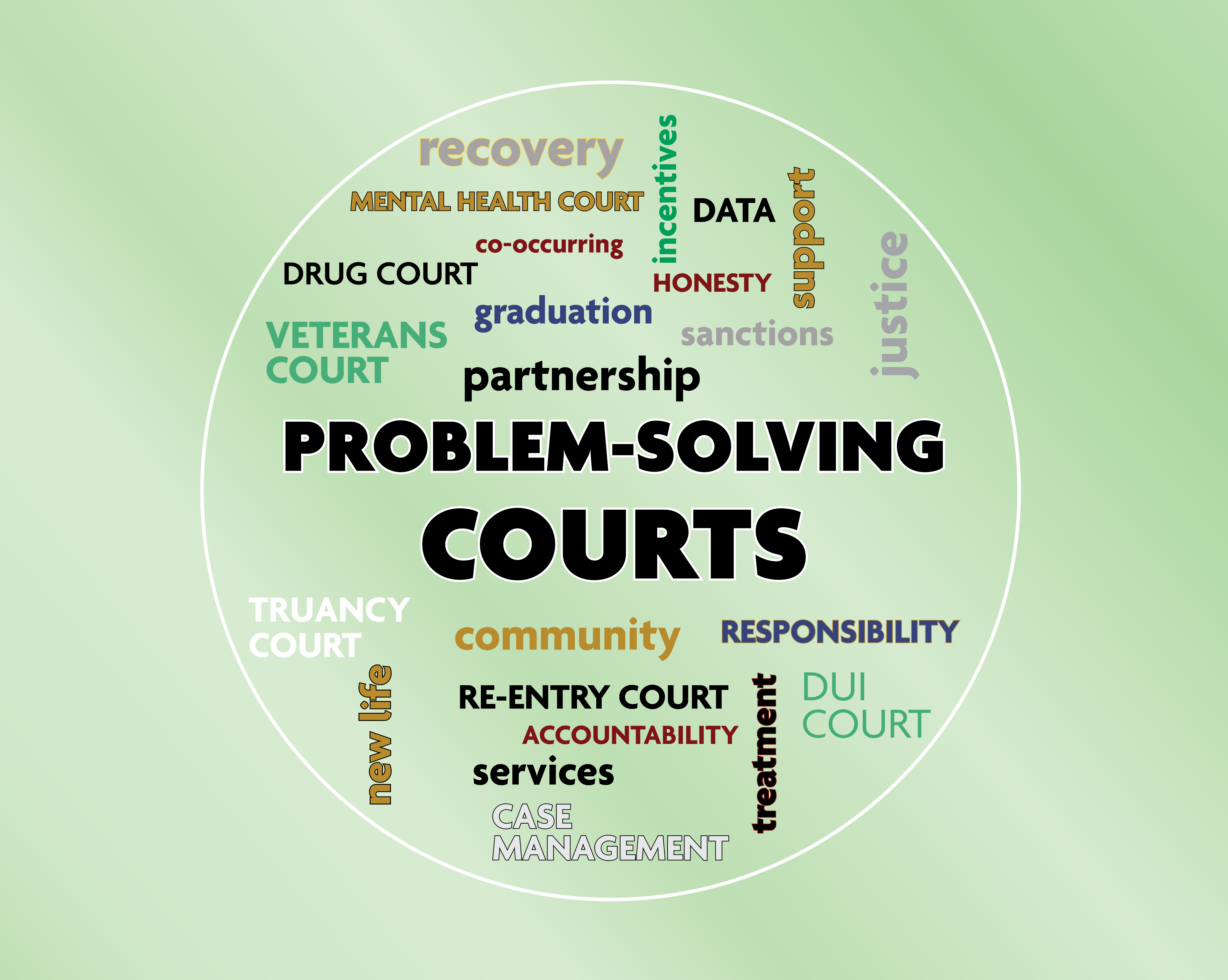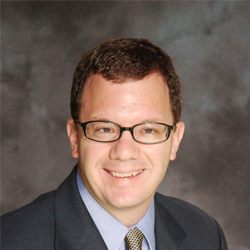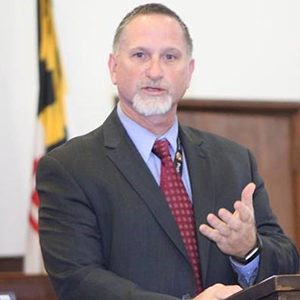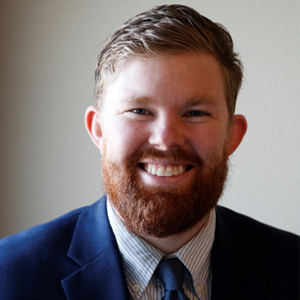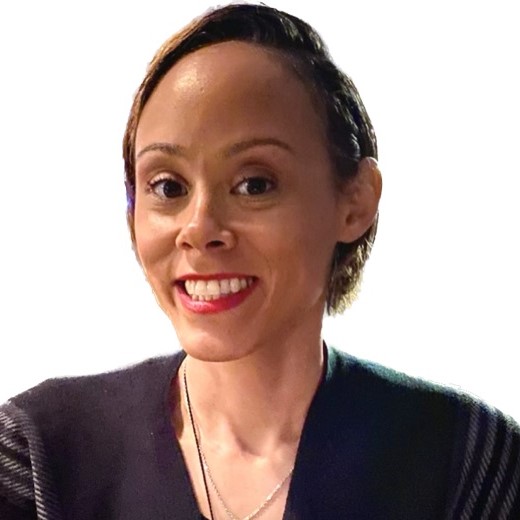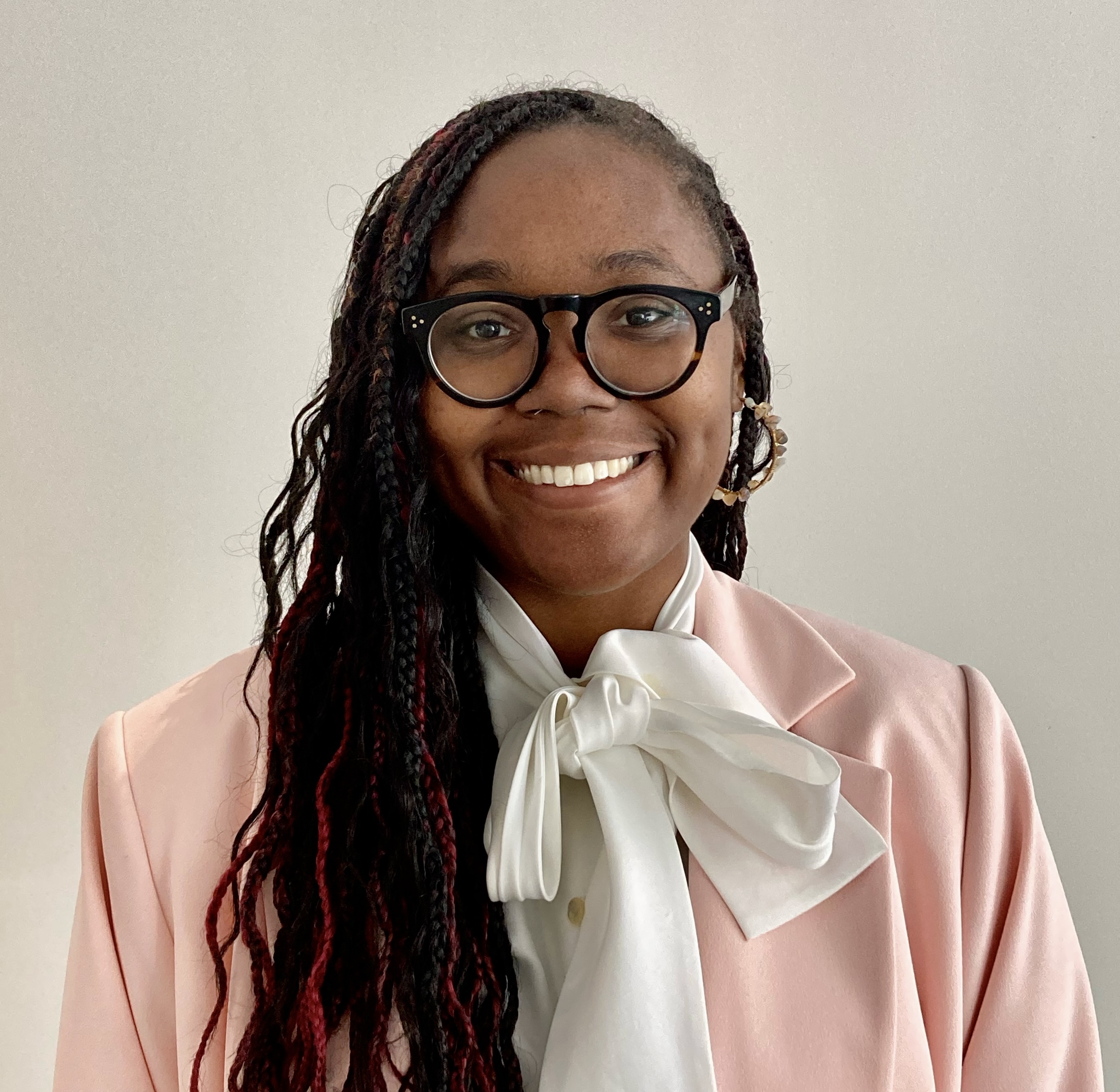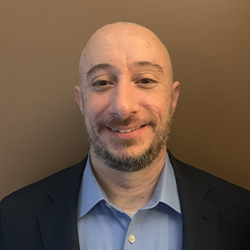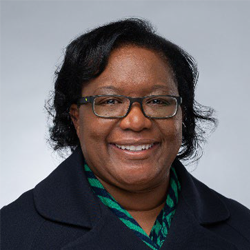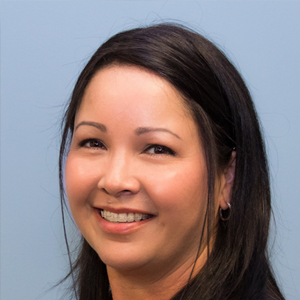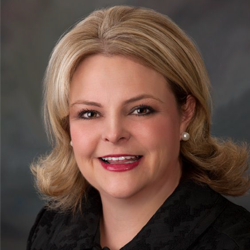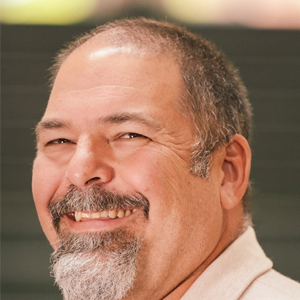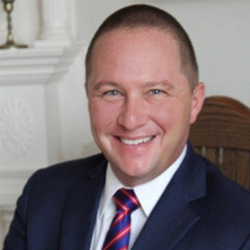
Cancelling your registration will remove your access to the event. If you proceed, you will no longer be able to participate or access event-related materials.
Deleting your account will remove your access to the event.
Treatment courts seek to modify participant behavior to increase certain desirable behaviors and decrease undesirable ones. Participants will learn how to apply research into the psychology of behavior modification and proximal and distal behaviors to effectively employ incentives, sanctions, and therapeutic adjustments to change the behaviors of individuals in the treatment court. The interactive exercise will allow teams to discuss the importance of formulating a strategy for applying graduated sanctions and incentives and appropriate treatment responses, the importance of being consistent in those responses, and the importance of not using treatment as a sanction.
Learning Objectives:
This session presents information on legal issues that occur in drug courts. During this lecture and discussion, participants will learn how federal laws regarding privacy and due process affect their drug court programs.
Learning Objectives:
Coming soon!
This session gives an overview of the necessity of distinct phases for adult treatment court participants to progress through on their journey toward commencement from the program.
Learning Objectives:
This presentation provides an overview of mental health disorders as described in the most recent edition of the Diagnostic and Statistical Manual of Mental Disorders, Fifth Edition, Text Revision (DSM-5-TR) published by the American Psychiatric Association in March, 2022. We will begin by defining mental health disorders and providing information regarding their incidence in the United States. We will then cover the different categories of disorders, focusing on those that are most likely to be encountered in the courts. Specific attention will be paid to substance use disorders, personality disorders, psychotic disorders, and mood disorders. We will also discuss co-occurring disorders and their prevalence among the justice-involved. The presentation will conclude with material on treatment components and further resources.
Learning Objectives:
Presenter: Judge Mary Jane Knisely – NDCI Consultant
Date: April 17, 2023
Time: 3:30pm – 4:45pm EST
This session introduces the adult treatment court team. It identifies the duties and responsibilities of each team member while highlighting their impact on outcomes. Additionally, this presentation discusses organizations, agencies, or individuals that are not team members but may serve an ancillary supporting role.
Learning Objectives:

The 18th Annual Problem-Solving Court Symposium brings Problem-Solving Court practitioners from across Maryland to discuss resources and generate ideas on how to embrace change and transform our programs to be new and innovative. Participants of this event can expect a lineup of engaging speakers.
Problem-Solving Court Judges, Coordinators, Case Managers, State’s Attorneys, Defense Attorneys, Public Safety Agents, Law Enforcement Officers, Court, and Treatment Staff.
The 18th Annual Problem-Solving Court Symposium brings A-List speakers to this virtual format to provide innovative presentations, case-studies, and panel discussions. These presenters come from around Maryland and across the U.S. and intend to generate ideas on how to embrace change and transform our programs to be new and innovative.
 8:00 AM-9:00 AM
8:00 AM-9:00 AM 9:00 AM-9:05 AM
9:00 AM-9:05 AM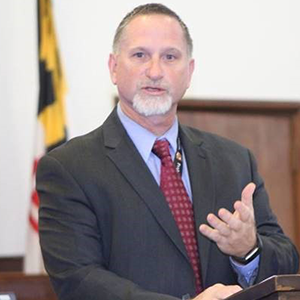
Director, Office of Problem-Solving Courts
 9:05 AM-9:20 AM
9:05 AM-9:20 AM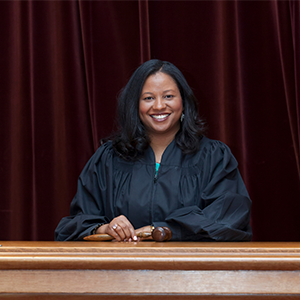
Baltimore County District Court
 9:20 AM-9:50 AM
9:20 AM-9:50 AM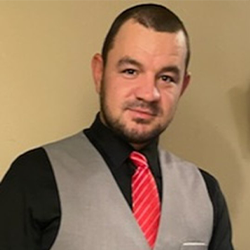
R & R Recovery
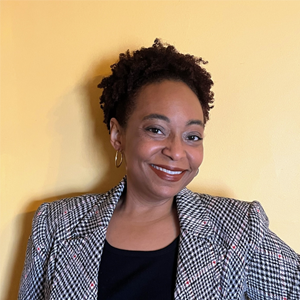
Harford County Circuit Adult Drug and Recovery Court
 9:50 AM - 9:55 AM
9:50 AM - 9:55 AM 9:55 AM - 11:10 AM
9:55 AM - 11:10 AM 11:10 AM - 11:20 PM
11:10 AM - 11:20 PM 11:20 AM - 12:30 PM
11:20 AM - 12:30 PM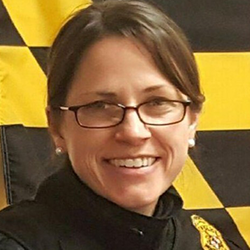
Jayme Derbyshire, Montgomery County Department of Police
 12: 30 PM - 1:00
12: 30 PM - 1:00 1:00 PM - 2:10 PM
1:00 PM - 2:10 PM 2:10 PM - 2:20 PM
2:10 PM - 2:20 PM 2:20 PM - 3:30 PM
2:20 PM - 3:30 PM 3:30 PM - 3:35 PM
3:30 PM - 3:35 PM 3:35 PM - 4:45 PM
3:35 PM - 4:45 PM
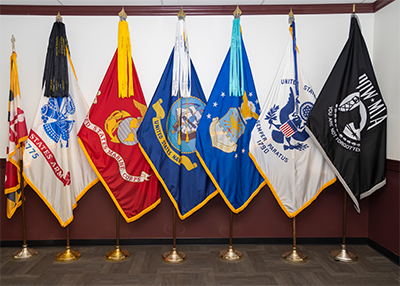


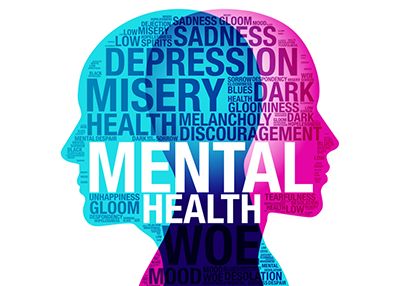

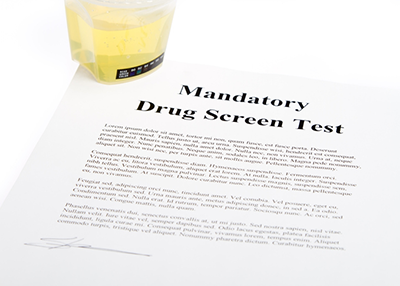


Christina M. Buck is a native of Prince George’s County, Maryland, where she graduated from the University of Maryland College Park with a Bachelor of Arts in Criminology in May of 1996. She has worked in the field of probation since 1999 as a juvenile counselor, agent, and now program coordinator of the Circuit Court for Prince George’s County Adult Drug Court Program where she started in 2009. She is dedicated in her service to the community but is most proud and blessed of being a working mother of thirteen-year-old twin boys, Chase and Bryce.
Officer Derbyshire has been with Montgomery County Department of Police for twenty years. She currently serves as the coordinator for their Chemical Test for Alcohol Unit. In this capacity, she is responsible for various training initiatives, to include an initiative known as Cannabis Impairment Detection Labs. Jayme is a certified Drug Recognition Expert and has spoken locally and nationally on impaired driving. For a number of years, Jayme has also had the privilege of offering testimony in front of Maryland’s General Assembly in an effort to increase traffic safety through legislative efforts.
Jayme is a recipient of the Maryland Highway Safety Office’s Innovative Program Award, the Montgomery County Department of Police Chief’s Award, the 2021 Sons of the American Revolution Law Enforcement Award, the 2021 Kevin E. Quinlan Advocacy Award, and is Maryland’s 2022 Drug Recognition Expert of the Year.
Shaelun Jackson holds a master’s degree in addictions counseling and has worked in the human services field for 14 years, with the last 11 focusing on holistic care in recovery. She started her journey in specialty courts as a substance use disorder counselor for Cecil County’s Adult Drug Court. Later, she moved on to Baltimore City’s Family Recovery Program, where she served as a case manager, then program supervisor. These led to her role as the court coordinator for Harford County’s Circuit Adult Drug and Family Recovery Courts.
Chyanne “Chy” Cook is a Philadelphia native, first generation college graduate, feminist, artist, and business owner. She currently works as the Community Educator for the House of Ruth Maryland, one of the leading organizations fighting to end violence against women and their children against intimate partner violence in families and communities.
Chy has been passionate about outreach most of her life, with a specific focus on women for the last five years. Previously working with FORCE’s ‘Youth Voices for Consent’ and Morgan State University’s Project S.T.E.P (Supporting through Education and Prevention), Chy has committed the next stage in her life to giving back to her communities in both Baltimore and Philadelphia. Chy’s brand “50ShadesofYOU” is a daily reflection of the work she has decided so much time, tears, vulnerability, and healing to. The lifestyle brand is devoted to exposing POC to self-love through healing, growth, and service.
Chy thanks her alma mater Morgan State University for reminding her who she is and the importance of living her life to the fullest. She holds a Bachelor’s degree in Business Administration and Entrepreneurship.
Dr. Lovins is a Principal at JSP. He earned his PhD in Criminology from the University of Cincinnati, and he is the current President for the American Probation and Parole Association (APPA). Prior to JSP, Dr. Lovins worked for Harris County Community Supervision and Corrections Department (CSCD) as the Assistant Director. He was tasked with developing and implementing agency wide change plans to drive increased successful completion rates.
Dr. Lovins has been instrumental in introducing the referee/coach conversation to the field. In 2018, Dr. Lovins and colleagues published the initial article “Probation Officer as a Coach: Building a New Professional Identity” in Federal Probation. Since then, he has delivered hundreds of conference presentations and invited talks regarding the referee/coach concept. Dr. Lovins routinely consults with agencies regarding their implementation of a coaching framework within the context of evidenced-based interventions.
Dr. Lovins has received the 2020 Edward J. Latessa Practitioner Research Award from the American Society of Criminology-Division on Corrections and Sentencing for his continued body of work in helping community corrections move forward. He has also been honored with the Dr. Simon Dinitz Public Service Award for his work and dedication in helping correctional agencies adopt evidence-based programs and the David Dillingham Award, as well as a being recognized as a Distinguished Alumnus from the University of Cincinnati. His publications include articles on risk assessment, sexual offenders, effective interventions, and cognitive-behavioral interventions.
I have been in recovery since July 11, 2017, thanks to the NA program. I started and own R & R Recovery Housing, which is clean and sober housing for people in recovery. R & R recovery housing welcomes residents from all diverse backgrounds, helping them to regain stability and adjust to daily living while in recovery. I also started an annual softball tournament for recovery teams and first responders’ teams to unite the two sides of our community.
Monica Christofferson, J.D., is the associate director for the Technical Assistance Department at the Center for Court Innovation. In this role, she provides expert assistance to states around the country on implementation and enhancement of treatment courts. Prior to her work at the Center, Ms. Christofferson developed, implemented, and directed the specialized domestic violence docket in Cuyahoga County Domestic Relations Court. Ms. Christofferson has also worked as a crisis intervention specialist and independent living program manager. Ms. Christofferson received her B.A. in political science from John Carroll University and J.D. from Catholic University of American, Columbus School of Law. Ms. Christofferson has presented on her expertise at local, state, and national conferences.
AMANDA SQUARE, M.D., M.P.H. is a board-certified Child, Adolescent, Adult and Forensic Psychiatrist. She is the Director of Adolescent Services at Spring Grove Hospital Center, which houses the only state hospital adolescent psychiatry unit. In that capacity she provides clinical treatment and forensic assessments for adolescents with diverse psychiatric needs. She also supervises and educates medical students, residents, Child and Adolescent Psychiatry fellows, and Forensic Psychiatry fellows. Dr. Square is an adjunct assistant professor with the University of Maryland’s Department of Psychiatry.
In addition to her role at Spring Grove Hospital Center, Dr. Square is the Senior Medical Advisor for the Maryland Department of Health, Office of Juvenile Pretrial Services. In this role she conducts and reviews competency to proceed evaluations. Further, she provides annual training to professionals involved in performing competency to proceed evaluations and those administering competency attainment services for Maryland juveniles.
Dr. Square earned her medical degree from Yale University and Master of Public Health from Harvard University. She completed her Psychiatry residency and Child and Adolescent Psychiatry fellowship at Yale University and a fellowship in Forensic Psychiatry at University of Maryland. Prior to relocating to Maryland, Dr. Square was an Assistant Professor at Yale Child Study Center and worked as an Adolescent Psychiatrist at Yale New Haven Hospital. She is licensed to practice medicine in Maryland, Connecticut, Colorado, and Texas. Her research interests include evidenced-based interventions in juvenile detention centers.
Teresa Chandler, BA is a national trainer for Great Lakes Training, LLC., a Michigan-based technical assistance and training group. Additionally, Mrs. Chandler is a 29-year veteran of the Michigan Department of Corrections (MDOC), and currently serves as a MDOC Communications and Culture Training Specialist and Master Trainer. She specializes in the training and support of Motivational Interviewing, Case Management, Violence Prevention, Domestic Violence Prevention and Trauma Informed Systems (SAMSHA). Teresa is a member of the Motivational Interviewing Network of Trainers (MINT) and has trained multiple court and treatment groups across the USA. Mrs. Chandler has been part of a national faculty, focusing on substance-dependency treatment providers and supervisors for the National Association of Drug Court Professionals (NADCP), the National Drug Court Institute (NDCI) and the American Society for Addiction Medicine (ASAM).
Jon Dansicker began his career with the U.S. Department of Veterans Affairs in November 2011. He previously worked as a contractor with the Department of Defense for 5 years. He earned a Bachelor’s Degree in Criminal Justice from Stevenson University and a Master’s Degree in Leadership and Management from Notre Dame of Maryland. He is a Marine Corps Veteran, serving from 2000 -2008. He resides in Havre de Grace, Maryland, spending most of his time on the Susquehanna River.
Kristen E. DeVall received her Ph.D. in sociology from Western Michigan University in 2008. At present, she is the co-director of the National Drug Court Resource Center and a professor of sociology and criminology at the University of North Carolina Wilmington. In addition, she has conducted evaluations of numerous treatment court programs and other criminal justice initiatives in Michigan and North Carolina since 2004. Several statewide evaluations (i.e., Michigan’s Swift and Sure Sanctions Probation Program & North Carolina’s Treatment Alternatives for Safe Communities) have involved the collection and analysis of both quantitative and qualitative data, as well as the merging of large datasets. Recent publications have appeared in Crime & Delinquency, Sociological Imagination, The Journal of Drug Issues, The Prison Journal, International Journal of Offender Therapy and Comparative Criminology, and Substance Use and Misuse.. Dr. DeVall has also garnered over $11 million in grant funding from SAMHSA, BJA, and others to support various treatment courts & other criminal justice programs. In addition, she worked as a case manager for a community corrections program in Kalamazoo, Michigan, for seven years. Providing direct services to individuals involved with the criminal justice system allowed her to see firsthand how the system operates and identify opportunities for system-level and policy change. Overall, her work seeks to bridge the gap between academia and practitioners, as well as influence the development of evidence-based policies and practices.
Michael T. Guilbault, Ph.D. is a psychologist licensed in Maryland and Washington DC. He attained his Ph.D. in Counseling Psychology from Howard University in Washington DC. His clinical interests are in forensic psychology, psychoeducational assessment, and social justice and advocacy. His interest in forensics originated from his belief in fairness and in exploring opportunities to redirect youthful indiscretions. He trained and was previously employed at DC Superior Court’s Child Guidance Clinic and he also worked six years at Patuxent Institution for Maryland’s Department of Public Safety and Correctional Services (DPSCS).
Dr. Guilbault currently works for the state of Maryland's Department of Health (MDH) as their Director of Juvenile Forensics. He and his team manage a team of psychologists/psychiatrists that contract with the state to perform competency to proceed evaluations on Maryland juveniles. They also oversee groups of counselors, social workers, and special educators that administer competency attainment services to youth found not competent but having the ability to attain competency in court-related matters. Dr. Guilbault communicates with stakeholders such as judges/magistrates, attorneys, and case managers and testifies at court hearings when necessary. He is also involved with research exploring MDH’s juvenile competency process and outcomes. He holds positions on the State Advisory Board for Juvenile Services and the Juvenile Justice Reform Council.
Dr. Guilbault also consults with groups like the Innocence Project, Maryland Office of the Public Defender, and local university reentry clinics related to inmates serving life sentences in Maryland. Academically, Dr. Guilbault is a clinical assistant professor with the University of Maryland's Psychology Clinic. In College Park, he conducts psychoeducational evaluations on a primarily adult student population seeking help for issues related to ADHD, learning disorders, mood concerns, and anxiety.
Anastasia Edmonston, MS CRC, currently serves as the project coordinator for the Maryland Behavioral Health Administration’s Federal Traumatic Brain Injury Partner Grant. In this capacity, she provides coordination of project initiatives including training on the topics of brain injury, person centered thinking and planning to professionals, including certified peer specialists who work in the fields of aging, mental health and addiction and law enforcement. She obtained her MS in Rehabilitation Counseling from Boston University and is a certified rehabilitation counselor. She earned a post graduate certificate in Instructional Systems Development from the University of Maryland, Baltimore County in 2014.
Ms. Foley is a senior program associate at Children and Family Futures (CFF). In this role, she serves as an advisor and technical consultant to states, counties, tribes, and regions across the country in issues related to substance abuse, child welfare, and the courts, providing and coordinating various levels of technical assistance for multiple projects. She has dedicated herself to women with substance abuse issues for over 25 years. Originally from California, she moved to Oregon for college, receiving a B.S. degree from the University of Oregon in sociology, with an area of concentration in substance abuse and prevention. She spent 11 years in Eugene at the Relief Nursery’s Accessing Success Recovery Support Program. Initially a peer support specialist, she advanced to alcohol & drug counselor, eventually managing the Recovery Support Program for six years. Her focus was serving parents with substance use disorders involved in child welfare. In 2006, she spent seven years as a caseworker within Child Welfare. In 2013, she accepted the position as the women’s treatment services coordinator and the Access to Recovery project director with the Oregon Health Authority, and Oregon’s (NASADAD) Women’s Service Network Coordinator.
MMs. Dawnia Flonnoy currently serves as a senior program associate with the Sobriety Treatment and Recovery Teams (START) at Children and Family Futures (CFF). In this capacity, she provides technical assistance to state and county child welfare jurisdictions for the implementation of the START model. Ms. Flonnoy has 22 years of professional social work experience. Ms. Flonnoy’s personal experience with familial substance abuse has been a driving force for her career path. Prior to joining CFF, Ms. Flonnoy was employed with the Public Children’s Services Administration in Cuyahoga County and Greene County where she worked for both Employment Family Services and Children and Family Services. While with Children and Family Services, Ms. Flonnoy served as a START social service worker and later, as a START supervisor. While working in child welfare, Ms. Flonnoy was also a part of the Cuyahoga County Family Drug Court team and facilitated monthly meetings with local substance use and mental health providers. Additionally, Ms. Flonnoy has experience providing training on child welfare, prenatal substance exposure and substance use disorders to university students, hospitals, and community organizations. Ms. Flonnoy holds expertise in the areas of child welfare, juvenile court, leadership, teaming, and collaborative practice. Ms. Flonnoy graduated from Wilberforce University in 1997 with a Bachelor of Arts in Rehabilitation and Corrections and obtained her Master of Arts in Justice Administration from Tiffin University in 2004.
Dr. Jocelyn Chaney-Gainers is president and CEO of The Family Recovery Program Inc., which serves Baltimore City residents who have lost custody of their children because of substance abuse. She brings more than 30 years of experience in the field of substance use disorders and recovery. A certified addictions counselor with expertise in working with adolescents, adults and couples in both group and individual settings, she is also a trainer and consultant for human service programs. Dr. Chaney-Gainers had a vision to create housing for parents in the program because housing is a significant challenge for parents once they have been reunited with their children. With the help of others, Dr. Chaney-Gainers bought and renovated a 28,000-square-foot Catholic school that is now The Harry and Jeanette Weinberg Building at Sage Center, where families can live while parents get jobs, return to college, and make other important life decisions.
Colleen Gibbons is the deputy director of the Center for Court Innovation’s Upstate office. Colleen works on a variety of state court initiatives, including supporting the expansion of opioid courts; developing new projects in the criminal, civil and family court systems; and overseeing the office’s numerous existing initiatives. In addition, Colleen works with the Center’s National Technical Assistance team, helping to provide training and technical assistance to jurisdictions across the country on a wide range of justice issues. Prior to working at the Center, Colleen practiced not-for-profit and elder law at a private law firm.
Colleen completed her J.D. at the Syracuse University College of Law. She received her M.S. and Ph.D. in Human and Community Development at the University of Illinois at Urbana-Champaign, and her B.S. in exceptional education at Buffalo State College. She completed her post-doctoral work at Syracuse University’s Falk College as the Project Manager for a National Institutes of Health grant.
Clemson University BA 1988
Dr. Hugh Holder is a retired internist physician who lives with his wife, Jackie and daughter, Alicia in Silver Spring, Maryland. He is an avid amateur gardener who loves growing vegetables and flowers even though rabbits, deer and other critters share the reaping. Hugh’s family worships in the Methodist tradition, trying to keep the spirit of volunteerism alive. Dr. Holder wrote his first book called “Sharing my Soul” in 2020 and is a former graduate of Mental Health Court in April 2019.
I enrolled in the Opiate Recovery Court Program in December of 2016. In January of 2017, I entered a detox facility and went directly from there into a yearlong sober living program for women called the Char Hope Foundation in Harford County, MD. In November 2017, I became the house manager at Char Hope and graduated the Court Program in February 2018, almost a month to the day after I had achieved a full year of sobriety. After completing both programs, I went to work as a peer recovery specialist for the Harford County Health Department, focusing on court related treatment in both the district and circuit court programs. Since December 2019, I have been serving as the case manager for Harford County’s Adult Drug Court, in the circuit court through Harford County’s Office on Drug Control Policy.
On January 11, 2022, I will be celebrating 5 years of recovery and complete abstinence from drugs and alcohol.
Kelly Loo Jones is a senior program associate at Children and Family Futures, working in the Family Drug Court Training and Technical Assistance (TTA) Program, providing coaching and TTA to state- and local-level court, child welfare, substance use disorder treatment, and justice systems. In this role she builds and strengthens systems capacity to implement trauma-informed, family-centered, and evidence-based models, practices, and policies to improve outcomes for children, youth, and families affected by substance use with multisystem involvement. Her expertise includes program development and implementation, performance measures and outcomes, building and strengthening multi-system collaborative practice, identifying and minimizing systemic barriers, and engaging teams in strategic and action planning to achieve program goals and objectives. Ms. Jones presents across the nation as a subject matter expert on FTCs with a focus on children and families who experience multisystem involvement (e.g., child welfare, juvenile justice, criminal justice). She is a skilled facilitator with a keen ability to enhance communication pathways within teams and across systems and build collaborative consensus to advance team mission and vision. She holds an MPA from California State University, San Bernardino and a BA in sociology from California State University, Fullerton. Her personal experience as a mother of an adult son in long-term recovery contributes to her passion and desire to apply holistic, family-centered approaches to improve outcomes and enhance service delivery for families affected by substance use disorder while disrupting intergenerational cycles of multi-system involvement.
Mr. Blakeley currently serves as a Program Associate for the Family Treatment Court Training and Technical Assistance Team for the Center for Children and Family Futures. He coordinates grant projects and program responsibilities and provides various training and technical assistance to Family Treatment Courts and teams around the United States.
Mr. Blakeley has nine years of experience in the child welfare system, including the role of court coordinator for Yellowstone Family Recovery Court, grant management in father engagement, child protection worker, and forensic interviewer. He has also taught at the high school and middle school levels.
Mr. Blakeley has experience training at the national, regional, statewide, and local levels. He is a certified trainer in How Being Trauma-Informed Improves Criminal Justice System Responses. He received a Master of Arts of Teaching from Christian Brothers University and a Bachelor of Arts in Human Rights Studies with minors in Political Science and Marianist Social Transformation from the University of Dayton.
Kristin is an Ethics Associate at the American Psychological Association, Peer Facilitator and Advocate for survivors of Intimate Partner Violence with the House of Ruth; as well as, an entrepreneur in the financial services industry. Along her journey she personally experienced IPV, at which point, her mission became to educate herself and the public on the signs of IPV. She utilizes her business as a tool to educate individuals about their options to expand their vision and environment from their current circumstances. She hopes her experiences inspire others and shines a light on their pathway to personal freedom.
Nikole S. Jones is a native Prince Georgian and graduate of Elizabeth Seton High School. She completed her undergraduate studies in psychology (minor in criminal justice) at James Madison University in 1993 and master’s degree in 2002 at the School of Social Work at Howard University in Washington, D.C. She completed her internship at the VA Hospital in the Washington, D.C. She really enjoyed working with veterans and wanted to commit her career to helping America’s warriors. Nikole’s experience in the VA includes work in the Substance Abuse Rehabilitation Program, and as the inpatient psych social worker. However, after the death of her family member in 2006 to suicide, Nikole became passionate about suicide prevention. Nikole interviewed and was selected as the VA suicide prevention coordinator in the VA Maryland Health Care System in Baltimore, Maryland. Nikole works directly with veterans who are at risk for suicide by providing counseling, education, and community support with the goal to reduce the incidence of suicide and increase access to care. Nikole also has had a private practice for the past 10 years, (Therapy 4 Life, LLC.) which provides counseling and consultation services for adults and children struggling with mental health and substance abuse issues. Nikole is working on her first self-help book, “The Compulsion to Die” that will be available in Spring 2022.
Christina Lanier is the co-director of the National Drug Court Resource Center (NDCRC) and a professor of sociology and criminology at the University of North Carolina Wilmington. She received her Ph.D. in sociology from the University of Delaware in 2006. She has extensive experience in grant writing and program evaluation. She conducts program evaluations for specialty courts in North Carolina and is a co-evaluator for a local re-entry program. Other recent projects include a statewide evaluation of the Swift and Sure Sanctions Probation Program (SSSPP) in Michigan, an evaluation of the North Carolina Treatment Alternatives for Safe Communities (TASC), and an evaluation of the mental health service delivery in Wayne County, MI jails. Her work has been published in Substance Use and Misuse, International Journal of Offender Therapy, Journal of Drug Issues, The Prison Journal, and The Journal of American College Health. Dr. Lanier’s focus is on linking the work of researchers with practitioners to make policy and social change.
Ret. Chief Judge Dennis Maes has served as an attorney, judge, and chief judge in the 10th Judicial District Court and school board member. Dennis graduated from St. Mary High School in 1963 from Walsenburg, Colorado. He attended Southern Colorado State College from 1963 through 1967 before attending the University of Colorado School of Law in 1969. Before attending law school, Dennis was a schoolteacher for Huerfano School District in Walsenburg. Once he received his JD, he began his career as staff attorney for Pueblo Country Legal Services. From 1976 through 1988, Dennis advanced through his career as deputy state public defender to his own private practice in Pueblo. On April 15, 1988, Dennis became district judge for Tenth Judicial District through May 2012. September 1, 1995, through May 2012 he served as chief district judge of the Tenth Judicial District. In the remaining years of his tenure, he worked establishing one of the top truancy reduction programs in the Nation. He turned his truancy court into a problem-solving court involving community agencies to service students and their families. Judge Dennis Maes retired on May 31, 2012. During his career he received numerous achievements and awards. In 2000, he was awarded the Outstanding Alumni Award for Distinguished Service from the University of Southern Colorado. In 2004, Dennis was Colorado CASA Judge of the Year. Following in 2008, the University of Colorado presented him with the Alumni Association Award for Distinguished Achievement. In 2011 and 2012, he was awarded three lifetime Achievement Awards from Colorado Hispanic Bar Association, Pueblo Country Bar Association, and Pueblo Latino Chamber of Commerce. Currently Dennis Maes is a member of the Southeast Regional Council for El Pomar Foundation, El Pomar Foundation board of Trustees, Mental Health of America Colorado Board of Directors and Pueblo Latino Chamber of Commerce Board of Directors.
Terri Martinez-McGraw has served in a variety of roles related to children and families over the past 30 years, both in Colorado and nationally. Terri currently serves as co-director for the National Center for School Engagement and special education consultant for Pueblo City Schools. She also is the Exceptional Student Services coordinator for Chavez-Huerta Preparatory Academy. She has managed Title One, Family Engagement, Special Education, Adult Education and Experiential Education programs for students and families. She was the director of Student Support Services for Pueblo City Schools, in Pueblo Colorado. In that capacity she implemented an effective truancy reduction program that entailed collaboration with the greater Pueblo community and the 10th Judicial District Court, and created a family advocacy program called Project Respect, which was recognized as one of the top truancy reduction programs in the United States. She has extensive experience in designing effective dropout prevention programs for schools and communities, while working as an assistant principal in an alternative school. She has worked as a mental health therapist, specializing in trauma informed care along with being a foster parent for 14 years. She has authored and assisted in the writing of many successful grants to serve “at promise” students. Her education includes a Bachelor’s in Social Work with a minor in Spanish, Master’s Degree in Special Education emphasis in Mild, Moderate, Severe needs and Master’s Degree in Educational Leadership with a Principal License. Terri is also a certified trainer in Love and Logic for Parents and Teachers.
Alisha F. Saulsbury, LCSW-C received her master’s degree from the University of Maryland. In 1999, she was part of a forensic pilot research study that is known today as Maryland’s T.A.M.A.R. (trauma, addiction, mental health and recovery) Program. She was one of the program’s founders in creating the curriculum used today. There are now over a dozen forensic locations in Maryland administering TAMAR and it is used nationally/internationally. In addition, she practiced on the Mid-Shore of Maryland as an outpatient provider for 30 years where she served children, adolescents, and adults.
She continues to serve as a national consultant/trainer the past 17 years through the National Association of State Mental Health Program Directors/SAMHSA’s National Center for Trauma-Informed Care. Her passion is teaching trauma-informed approaches and increasing awareness to judiciary, law enforcement officers, first-responders, and other clinicians.
She practiced on the Mid-Shore of Maryland as an outpatient provider for 30 years where she worked with children, adolescents, and adults. In addition, she was one of the first graduates of the Interface Master ACEs (Adverse Childhood Experiences) Presenters for the state of Maryland in October 2018, where she volunteers doing ACE’s trainings for The Family Tree in Baltimore, Maryland.
Currently, she is the Forensic Mental Health Program Manager for Mid-Shore Behavioral Health, the local behavioral health authority, and Core Service agency for the 5-county region. She conducts Forensic Mental Health Evaluations for the criminal justice system and has a case manager who provides supportive services to those in need.
Terrence D. Walton, chief operating officer (COO) for NADCP, is among the nation's leading experts in providing training and technical assistance to treatment courts and other providers of substance use disorder treatment. Prior to being named COO in 2015, he was NADCP's chief of standards. Before coming to NADCP, Mr. Walton was director of treatment for the Pretrial Services Agency for the District of Columbia. Additionally, he previously excelled as the director of what was then the District of Columbia's leading adolescent outpatient substance use treatment center. Mr. Walton is an internationally certified alcohol and other drug abuse counselor with over 25 years of experience helping individuals and organizations champion positive change. He holds a B.A. degree in psychology and a Master’s Degree in Social Work with Specializations in Program Administration and Substance Abuse. He is a member of the Motivational Interviewing Network of Trainers (MINT). A gifted and entertaining speaker, Mr. Walton travels extensively, informing, and inspiring audiences across the globe.
I grew up in Mobile, Alabama in an extremely loving home. I was good in school and played sports throughout my childhood into high school. I was always trying to find who I was and never felt like I fit in anywhere but could always make friends. It was the way I felt inside, and I felt very alone. My grandmother was diagnosed with cancer in January of 2002 and died a month later. My stepmother’s mom was diagnosed with cancer as well and died 6 months later. I felt like my world had stopped and did not know how to process those feelings, nor did I want to. My mom began reading things that I was writing in my journal and took me to a psychologist, who referred us to a psychiatrist. I began experimenting with alcohol, marijuana, cocaine, ecstasy, acid, and opiates. I quickly found that these drugs made me feel a feeling that I had searched for my whole life. I felt okay with who I was, and I didn't care what anyone thought of me. I began stealing, lying, manipulating. I was arrested for the first time and went to rehab at the age of 17. I had a seizure from withdrawal. My life completely took a turn for the worst. I had no regard for anything that was happening around me. The damage I caused, to me, seemed to be negligible as long as I could continue to use the way I wanted. I moved to Maryland at the age of 18 and attempted to get my life together and use drugs successfully. I managed to get my GED and start a business. However, I quickly began stealing money from my own business and was forced to sell my ownership or face criminal charges. From the age of 24-31, I was arrested multiple times, evicted from home and had cars repossessed. The only thing that mattered to me was drugs. After receiving my 2nd felony charge in Maryland, I attempted to move back to Alabama but just found different substances to use there. I was so ashamed of myself and felt horrible remorse for the way I was but was completely powerless to stop using drugs. One day I asked my Mom to send me back to Maryland so I could reconnect with a recovery network I had built there years prior. I also knew I had to face those felony charges in Carroll County, Maryland. I moved into a sober home there and was given the opportunity to participate in Carroll County drug court. I knew that I had no choice but to do what the people around me said to do. I did not have a car and walked 1 mile each way to my appointments. I walked to work. I knew that if I did not want to use drugs anymore that I had to take actions that were completely opposite of who I used to be. I completed drug court successfully, moved out of the recovery house successfully and have nearly 3 years clean today. I help manage Rising Above Addiction, a non-profit organization that has 2 sober homes in Carroll County. I also work in the treatment field and try to listen to other suffering addicts and lead by example.
Lisa Coles is the supervisory social worker for the Health Care for Homeless Veterans Program at the Baltimore Veterans Administration (VA) Medical Center. Mrs. Coles began her tenure at the VA in 2006 as an outreach worker, advocating for street homeless veterans and connecting them to VA healthcare. Currently, she serves as the subject matter expert in homeless services and resources for the VAMHCS and supervises all homeless programming including the Veterans Justice Programs. Mrs. Coles began her civilian federal service working with active-duty military at Walter Reed Army Medical Center as a psychiatric social worker in 2004. She has since dedicated her professional career to serving the most vulnerable veterans in the Veterans Health Administration. Mrs. Coles is passionate about identifying and dismantling barriers to veterans achieving stable, permanent housing and access to care for issues contributing to their homelessness. Mrs. Coles has recently been recognized for assisting with getting veterans in VA shelters vaccinated for COVID 19 and volunteering to assist with COVID vaccination initiatives of elderly and immunocompromised veterans during the CDC second phase of the vaccination rollout. Mrs. Coles is a graduate of the University of Maryland School of Social Work and University of Maryland Baltimore County (UMBC). She enjoys watching romantic comedies and running 5k’s with her husband Eric. Pre-pandemic, Mrs. Coles was an avid contributor and participant in Habitat for Humanity builds in South and Central America and the Caribbean. Fun fact: she has 15 veteran family members including both of her parents as well as her brother.
Coming soon
Kimberly M. Davis is an Associate Judge on the District Court of Maryland for Baltimore County, District 8. She was appointed on December 28, 2012.
Judge Davis served as law clerk for the Honorable Roger W. Brown, Sr., Associate Judge for the Circuit Court for Baltimore City, from 2000 to 2001. She was an Assistant Public Defender in Baltimore City from 2001 to 2004. Judge Davis was a solo practitioner from 2004 to 2012. She founded the Law Offices of Kimberly M. Thomas, LLC, where she litigated criminal, civil and domestic matters.
Judge Davis presides over criminal, civil, and domestic violence matters. She is the managing judge for the District Court of Maryland for Baltimore County’s Problem-Solving Court Program, which is comprised of the Adult Recovery Court and the Mental Health Court. Judge Davis also presides of the Mental Health/Competency Docket.
Judge Davis currently serves as the Chair of the Judicial Council’s Specialty Courts and Dockets Committee and served as a member of the Problem-Solving Courts Subcommittee from 2020 to 2021. She was a member of the Maryland Judiciary Committee on Equal Justice, Community Outreach Subcommittee from 2020 to 2022. She was a member of the Domestic Violence and Peace Order Subcommittee from 2015 to 2019 and served as the Vice-Chair of the Domestic Violence and Peace Order Subcommittee from 2016 to 2019.
Judge Melanie M. Shaw Geter is an Associate Judge of Maryland’s second highest court, the Court of Special Appeals. Elevated in June of 2016 by Governor Larry Hogan, this year marks Judge Shaw Geter’s 25th year serving in the judiciary. She was initially appointed to the District Court for Prince George’s County and later elevated to the Circuit Court. While in the Circuit Court, she handled both jury and non-jury civil, family, and criminal trials and served as the County’s Juvenile Judge and as the County’s Criminal Coordinating Judge.
During her tenure, Judge Shaw Geter has worked on many court related projects designed to improve the administration of justice and to educate the community about the judiciary. She implemented the County’s first Juvenile Drug Court and Re-Entry Court programs and piloted the Court’s Treatment for Mothers of Addicted Newborns (TMAN) docket. She co-chaired a taskforce examining the Circuit Court’s Accessibility to the Latino Community, has served on the Maryland Judiciary’s Public Awareness Committee, the Public Trust and Confidence Committee, Education Committee, the Judiciary’s Mediation and Conflict Resolution Board as well as Maryland’s Juvenile Justice Advisory Council. She currently serves on the Judiciary’s Alternative Dispute Resolution Committee and the Problem-Solving Court’s Subcommittee.
Prior to her appointment, the Judge was a career prosecutor, having ended her career as Chief of the Homicide and Narcotics Division of the State’s Attorney’s Office in Prince George’s County. Judge Geter received her Bachelor of Arts Degree from Howard University and her Juris Doctorate Degree from the University of Maryland Francis King Carey School of Law.
Gray Barton is the Director for the Office of Problem-Solving Courts in Annapolis, Maryland. In this position Mr. Barton oversees the planning and administration of various types of drug and DUI courts, mental health courts, veterans courts, truancy courts, and other problem-solving court programs for the Maryland Judiciary. Mr. Barton began counseling emotionally disturbed adolescent males at New Dominion Wilderness Program in Cumberland, MD. He later took an Addictions Specialist position with the State of Maryland, diagnosing and treating adolescent males with chemical dependency issues. He held the Treatment Supervisor position at The Abraxas Foundation of Ohio before becoming the Treatment Court Coordinator for the Mansfield Municipal Court and assisted the court in developing one of the first municipal drug courts in the State of Ohio. Then as the Treatment Coordinator of the Richland County Drug Court, Mr. Barton was involved in the implementation and continuation of regional municipal and common pleas drug courts in several counties, assisting in the planning and implementation of drug court programs in these jurisdictions.
Maryland Problem-Solving Courts have greatly grown since the initial inception. Since its inception, Maryland has fostered the growth of 60 Problem-Solving Courts to include: Adult Drug Courts, Juvenile Drug Courts, Mental Health Courts, Re-Entry Courts, Truancy Courts, Veterans Treatment Courts, Family Recovery Courts, and the Back on Track Program. This session will discuss how life has turned a corner from the perspective of a participant who was unable to complete program requirements.
Incentives and sanctions, also known as contingency management, are essential to treatment court success. When properly used, they are a powerful tool for improving client behavior and program outcomes. Treatment courts achieve better outcomes when practitioners understand the science behind behavior management and apply the principles. The research is clear: impacting reliably participant behavior requires both consistent reinforcement of positive behaviors and reliable responses to undesirable behaviors. Nonetheless, despite our best intentions (and perhaps the best intentions of the participants,) sometimes it doesn’t work. For some participants, our responses to behavior seem to have no impact. This session will describe the essential elements of effective behavior modification in a drug court and reveal what actions a program should consider when their efforts appear futile
With nearly half of the US population residing in a state where cannabis is fully legal, it is important to better understand the impact that this drug has on the consumers (medicinal and recreational), the community, and traffic safety. This session will cover current cannabis legalization status, how cannabis effects the human body, and why cannabis impairment is a real concern for roadway safety. Other topics that will be briefly touched upon will include which cannabinoids impair, rising THC percentages, ingestion methods and why they matter, new technology for detection of recent use, and current perception of risk with ingestion.
Family Treatment Courts (FTCs) are one of the most promising models for improving treatment retention and family reunification rates in the child welfare system. The therapeutic model of FTCs relies on cross-system collaboration and family-centered, trauma-informed approaches to engage, support, and serve children, parents, and families affected by substance use. Implementing FTCs provides juvenile and family court professionals with a unique opportunity to disrupt intergenerational cycles of multi-system involvement including the foster care-to-prison pipeline while improving outcomes and healing families affected by substance use.Attention Deficit Disorder in Court Involved Young Adults and Juveniles
This presentation will discuss identifying what abuse is, why leaving is not always easy, and how to support victims of IPV/DV.
This session will provide an overview of the physical, cognitive, and behavioral health consequences for those living with a history of often hidden, often multiple insults to their brain because of traumatic and acquired brain injuries. Brain Injury is a common and often unrecognized co-occurring behavioral health disorder. According to the National Association of State Head Injury Administrator’s Leading Practices Academy on Criminal and Juvenile Justice and Brain Injury, the “prevalence of brain injury within the criminal and juvenile justice system is staggering: Youth: 44% and Adults: 41-82%.” Attendees will be provided evidence-based strategies and interventions to support individuals who are both currently involved with the courts who are living with a brain injury or at risk of becoming justice involved.
The question of why/how language is important to the work that is done in treatment courts and the larger criminal legal system is an emerging area of interest to both practitioners and researchers alike. Sociologists, linguists, and others have examined the role of language within our society and the influence it has on thoughts, attitudes, and behaviors. This presentation will begin with an overview of this work and answer the question of “what is language?” Second, the goals of both the criminal legal system and treatment courts will be outlined. Next, an overview of how language can serve as a vehicle by which we do/do not achieve these goals will be provided. Finally, a historical account of how language has changed over time will be reviewed. Specific attention will be paid to terminology practitioners and researchers should avoid using, as well as alternative words/phrases that promote recovery, healing, and wellness.
Stigma about substance use disorders affects the attitudes of court, treatment, and social service professionals, families, community members, and the individuals themselves—creating barriers for people seeking to engage in services. Disrupting stigma and building recovery capital increases meaningful engagement through relationship building and cross-systems collaboration while promoting protective factors, resiliency, and overall family well-being thereby improving outcomes for families affected by substance use disorders.
Presentation will discuss:
At the conclusion of the presentation, you will have increase awareness of prevalence of suicide and suicidal behavior in the veteran population and the suicide prevention initiatives at the VA.
Coming soon!
Vet Centers are community-based counseling centers that provide a wide range of social and psychological services, including professional readjustment counseling to eligible veterans, active-duty service members, including National Guard and Reserve components, and their families. Readjustment counseling is offered to make a successful transition from military to civilian life or after a traumatic event experienced in the military.
Individual, group, marriage, and family counseling are offered in addition to referral and connection to other VA or community benefits and services. Vet Center counselors and outreach staff, many of whom are veterans themselves, are experienced and prepared to discuss the tragedies of war, loss, grief, and transition after trauma.
Research and practice experience indicate that 60-80% of substantiated child welfare cases have substance use and co-occurring disorders as the underlying cause of the abuse or neglect. Numerous studies point to the critical importance of early engagement in quality treatment and other services to improve child welfare and recovery outcomes for families affected by a parental substance use disorder (SUD). Practices focused on early identification, screening, assessment, and early engagement provides the greatest opportunity to fully meet the comprehensive needs of children, parents, and families affected by SUDs that come to the attention of the child welfare system.
This population of families experience conflicting timeclocks related to the Adoption and Safe Families Act (AFSA) timeline to reunification, treatment, recovery, and child development. Attendees will learn best practices and concrete strategies to engage and serve families affected by SUD including preventing child removal by serving families in-home. This session will highlight the work of the Baltimore Family Recovery Program, a recently named Peer Learning Court in the Family Drug Court Training and Technical Assistance Program, who will share innovative strategies they implemented to improve engagement and service delivery for families affected by SUD.
In this breakout session, we will talk about how trauma "shows up" in the criminal justice system. Learn how Maryland studied gender-specific recidivism rates and how these studies led to program development, implementation and training of correctional officers and partners in the judicial system. We will review the history of the TAMAR (Trauma, Addictions, Mental Health and Recovery) Program and how incarcerated individuals can become program participants while detained. By using the RICH model (Respect, Information, Connection and Hope), we recognize recovery is indeed possible.
Children, youth, and families who experience systems involvement due to substance use and mental health disorders do not exist in isolation. Healing this population requires a cross-system collaborative, family-centered, and trauma-informed approach that focuses on family voice, well-being, safety, permanency, and recovery to disrupt intergenerational cycles of multisystem involvement. Children, youth, and families involved in child welfare and/or juvenile justice systems deserve to receive the necessary services that will strengthen their families by mitigating risk and building on protective factors so that when they leave the system they do not return.
This session gives an overview of the necessity of distinct phases for adult treatment court participants to progress through on their journey toward commencement from the program.
Learning Objectives:
This session introduces the adult treatment court team. It identifies the duties and responsibilities of each team member while highlighting their impact on outcomes. Additionally, this presentation discusses organizations, agencies, or individuals that are not team members but may serve an ancillary supporting role.
Learning Objectives:
Come and learn the history of truancy and review how traditional punitive approaches to truancy are not the answer. We will learn how to transform the traditional truancy court into a problem-solving court, where students and their families are supported to become positive members of the community. The root causes of truancy in a child’s life can be tragic. This session will discuss engaging the family and community partners in collaborative manner by celebrating student strengths to overcome many of life’s obstacles.
What is the structure of the problem-solving court? There are several branches of a successful Problem-solving court. Find out who needs to be at the table in addressing truancy, judicial/school/relationships, and support systems. This is an interactive session where the actual truancy reduction project will be viewed and opportunities to answer questions specific to your community.
As supervisors begin to re-evaluate their work, there is a significant shift in the role they can play on treatment court teams. Agencies have historically been asked to play a referee-type role–monitoring the rules and conditions and blowing the whistle when observing the justice-involved individual stepping outside the lines. But there has been a recent call to transform supervision from referees to coaches. The coaches’ role is to help their players win. To do so is to be able to assess talent quickly, design plans to help build strengths while minimizing the risks, reinforce, cheer, and hold accountable. This presentation will provide the framework for rethinking supervision at the table as one of coach versus referee.
Participants will learn about the importance of data collection of a successful truancy reduction program. With data, this ensures sustainability of the truancy reduction program. Learn about funding opportunities and most importantly the necessity of community collaboration to enrich your court room and schools. Learn strategies to overcome the judicial barriers in addressing truancy. The participants will have time to ask any clarifying questions specific to your schools/courts.
Judge Mary Jane Knisely, a native Montanan, graduated from Texas Christian University with a B.S. in psychology. Receiving her J.D. from the University of Montana School of Law, she clerked for the district court before becoming a Billings deputy city prosecutor. In 1997, Judge Knisely was elected as Billings municipal court judge, and in 2010 she was elected to the General Jurisdiction District Court bench, becoming the presiding chief judge in 2014. Judge Knisely pioneered drug, DUI, veterans, and mental health courts in Montana. She currently presides over STEER (Sobriety, Treatment, Education, Excellence, and Rehabilitation), a felony impaired driving court, and CAMO (Courts Assisting Military Offenders), a veterans treatment court. In May 2017, STEER and CAMO were selected as NADCP Academy/Mentor Courts. Judge Knisely is the Region 10 judicial outreach liaison, in partnership with the National Highway Traffic Safety Administration and the American Bar Association Judicial Division. She serves on the faculty of the National Judicial College, NADCP, NCDC, NDCI, and Justice for Vets. Appointed to the Montana Governor’s Juvenile Justice Advisory Council, Judge Knisely has a mission to reduce the number of juveniles detained, diverting them to community-based programs. She recently received the State Bar of Montana’s Karla M. Gray Equal Justice Award.
Gregory G. Pinski is a retired Montana district judge. He earned his B.A. in political science and journalism from the University of North Dakota and his J.D., with distinction, from the University of North Dakota School of Law. He also attended the National Judicial College at the University of Nevada–Reno. Before taking the bench, Judge Pinski taught at the University of Minnesota Law School and practiced law in Minnesota and Montana. As a district judge, he sat by designation on the Montana Supreme Court and served on the Montana Drug Treatment Court Advisory Committee. Judge Pinski founded a veterans treatment court and presided over a drug treatment court for eight years. During that time, he secured over $5 million in public and private grants to expand his treatment courts. He worked closely with the Harvard Law School Access to Justice Lab to design a comparative study on treatment court processes. As a member of the National Judicial Opioid Task Force, Judge Pinski authored federal, state, and tribal jurisdictional transfer agreements to expand access to treatment courts. He also drafted the Model Veterans Treatment Court Act for the Uniform Law Commission. In the private sector, Judge Pinski is the president of Treatment Court Consulting Group, LLC, providing treatment court evaluation services, and he founded a nonprofit veterans law clinic. He is a consultant to the NADCP, NDCI, Justice For Vets, and the Tribal Law and Policy Institute, providing research, training, and technical assistance services to treatment courts across the United States.
Brian L. Meyer, Ph.D., LCP, is a clinical psychologist and the psychology program manager for community-based outpatient clinics at the Central Virginia VA Health Care System. He is also an assistant professor in the Department of Psychiatry at Virginia Commonwealth University. He earned his A.B. from Harvard University in 1980 and his Ph.D. in clinical psychology with a specialization in adolescents and families from Duke University in 1990. Dr. Meyer has worked in the child welfare and child and adult mental health fields as a clinician, administrator, teacher, policy maker, program developer, expert witness, researcher, consultant, and trainer. He has been the deputy clinical director of the New Mexico Children, Youth, and Families Department Protective Services Division; the executive director of the Albuquerque Child and Family Guidance Center; the executive director of the Virginia Treatment Center for Children; and the interim associate chief of mental health clinical services and PTSD-SUD specialist at the McGuire VA Medical Center. In his current roles, Dr. Meyer oversees psychologists at five regional VA community clinics; provides evidence-based treatments for veterans who have problems with PTSD, substance use, depression, traumatic brain injury, and other co-occurring conditions; and develops and conducts research on treatments for PTSD, substance use, and co-morbid conditions. Dr. Meyer has given more than 300 presentations and trainings on a wide range of topics and is the co-author of Transcending Self Therapy: Group Integrative Cognitive Behavioral Treatment Book for Facilitators (2019), a treatment manual for people with substance use disorders.
Carolyn Hardin is the chief of training and research for NADCP, a nongovernmental organization based in Washington, D.C. She oversees the daily operations for NADCP’s three divisions: National Drug Court Institute, National Center for DWI Courts, and Justice for Vets. She also oversees the development and implementation of training for the organization. Ms. Hardin currently travels nationally and internationally, assisting teams with planning and operating successful drug courts. She received her master’s degree in public administration from the University of Akron in Ohio and her B.A. degree in public administration from Talladega College in Talladega, Alabama. Her work experience includes resource development and acquisition, program planning and evaluation, and MIS database management. Ms. Hardin has supervised probationers, parolees, and federal inmates and has supervised special caseloads, including sex offenders, dual-diagnosis offenders, and violent offenders.
Dr. Kevin Baldwin is a clinical psychologist with a dual emphasis on research and forensics. He serves as a senior researcher for Applied Research Services in Atlanta, Georgia, providing criminal justice research and policy analysis nationally. He has directed federally funded research projects, authored over a dozen articles in peer-reviewed journals, and designed and evaluated substance use treatment programs. Dr. Baldwin authored a publication entitled “Sex Offender Risk Assessment” for the U.S. DOJ’s Office of Sex Offender Sentencing, Monitoring, Apprehending, Registering, and Tracking. He is director of forensic services at the Highland Institute, an Atlanta outpatient clinic specializing in the assessment and treatment of persons with sexual behavior problems. He performs forensic examinations, serves as an expert witness in state and federal courts, and has worked in both inpatient and community-based mental health settings. Dr. Baldwin is a frequent presenter at regional and national conferences and has provided training to treatment court staff. He also serves as faculty at the National Judicial College and NDCI. Dr. Baldwin earned his Ph.D. at Georgia State University after completing an adult forensic internship at the University of North Carolina at Chapel Hill School of Medicine and the Federal Bureau of Prisons.
